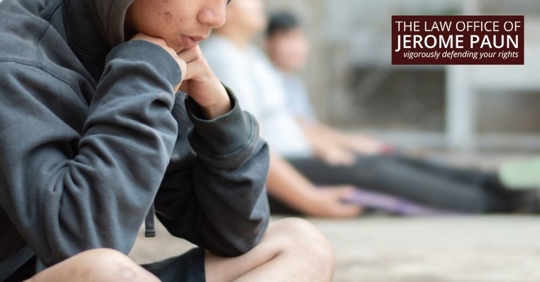Seeing your child or a young family member facing a drug charge can be a terrifying and overwhelming experience. You might be asking yourself, "What happens now?" "Will this ruin their future?" These are valid concerns, and it's crucial to understand the potential consequences and know that there are ways to fight these charges.
What's at Stake: The Consequences of a Juvenile Drug Charge
In Connecticut, a juvenile drug charge is a serious matter. Unlike the adult court, the focus of the juvenile justice system is often on rehabilitation rather than punishment. However, that doesn't mean the consequences are minor. A conviction can lead to a range of outcomes, including:
Probation: The most common outcome, requiring the juvenile to follow specific rules and check in regularly with a probation officer.
Court-Ordered Treatment: The court may mandate participation in a drug education or rehabilitation program.
Community Service: A requirement to perform unpaid work for a non-profit organization.
Detention: In more severe cases, a juvenile may be placed in a locked facility.
A Permanent Record: While juvenile records are often sealed or expunged, a serious conviction can sometimes remain accessible and impact future opportunities for college, jobs, or even military service.
The long-term effects on a young person's life can be significant. A criminal record, even a sealed one, can create barriers and limit one's potential. This is why it's so important to address these charges proactively and with the right legal guidance.
Understanding Connecticut's Juvenile Justice System
Connecticut’s juvenile justice system operates differently from the adult system. The proceedings are confidential, and the goal is to address the underlying issues that led to the offense. The state uses a variety of diversionary programs designed to keep young people out of the formal court system and on a path to a positive future. An experienced attorney can help your family navigate these options and work towards the best possible outcome.
How a Lawyer Can Help
Fighting a juvenile drug charge requires a specific kind of legal expertise. A juvenile defense lawyer can be a powerful advocate for your child. They can:
Challenge the Evidence: Did the police have a legal reason to search your child or their property? Were proper procedures followed? An attorney will meticulously review the details of the arrest.
Negotiate with the Prosecutor: A skilled lawyer can present your child's situation in a way that highlights their potential and argues for a resolution that avoids a formal conviction, such as a diversionary program or a lesser charge.
Advocate for Your Child's Best Interests: A lawyer acts as a voice for the family, ensuring the court considers the juvenile’s history, circumstances, and future well-being. They can advocate for treatment and support services instead of punitive measures.
The Path to a Brighter Future
A juvenile drug charge does not have to be a life sentence. With the right legal support, your family can navigate this difficult time and work towards a resolution that protects your child's future. It's about taking immediate action, understanding your rights, and putting a plan in place to mitigate the long-term consequences.
If your child is facing a drug charge, please don't wait. The earlier you seek legal counsel, the more options you have. The Law Office of Jerome Paun understands what’s at stake and is here to help.
Contact us today at (860) 455-4202 for a confidential consultation and take the first step toward securing your child's future.

